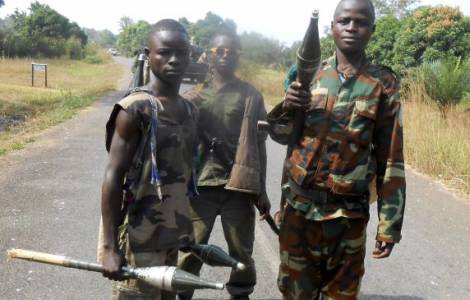
Bangui (Agenzia Fides) - "I think it can be an advantage to combine the internal justice of Central Africa with that administered by the International Criminal Court", says Cardinal Dieudonné Nzapalainga, Archbishop of Bangui, capital of the Central African Republic, in an interview with Centrafrique Espoir.
The International Criminal Court (ICC) is investigating an "interminable list" of crimes against humanity committed in Central Africa before, during and after the civil war that broke out in 2012, when the Seleka rebel coalition drove President François Bozizé out, and a period of instability began that still goes on.
The ICC condemned Jean-Pierre Bemba, former Vice President of the Democratic Republic of Congo, for the atrocities committed between the end of 2002 and the beginning of 2003, by his troops that rushed in support of the then Central African President Ange-Félix Patassé, who will however be overthrown by Bozizè on March 15, 2003.
The Country is therefore suffering a long series of crimes that constitute a serious obstacle on the path of peace and reconciliation. "It is important for the human being to realize the evil he has committed against his brother", points out Cardinal Nzapalainga. "Justice - which can deprive you of freedom for a certain period of time - is a positive value to reflect and mature in humanity. To say no to impunity is to say no to the infernal cycle of violence. Nothing must be above the law", he underlines.
The Cardinal believes that along with the ICC criminal action, Central African justice must be given value. "I think we will gain advantage in combining the two forms of justice. This is because there are people in villages who will not be able to go to the ICC (which is based in the Netherlands, ed.) And there is therefore a need for justice to play its role at a local level. This is essential for social cohesion", underlines the Cardinal.
Regarding the forgiveness of the perpetrators, the Cardinal recalls that "forgiveness has never ruled out justice, on the contrary". Those who have committed crimes must recognize them. "We simply ask that both recognize that they have done wrong. Forgiveness comes later", he concludes. (L.M.) (Agenzia Fides, 06/12/2017)